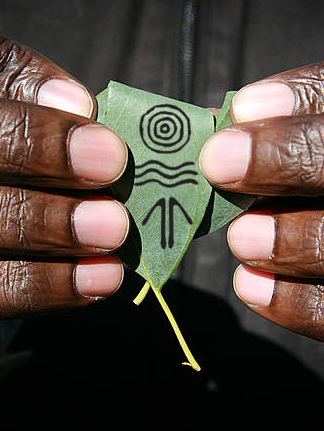Truth-telling timely in NT
 The head of the NT Treaty Commission says truth-telling is needed ahead of its 2022 submission.
The head of the NT Treaty Commission says truth-telling is needed ahead of its 2022 submission.
The commission has put out a discussion paper on the framework for establishing treaties in the NT.
It comes after the Territory government in 2016 pledged to establish treaties with Aboriginal groups.
The paper says treaties need to recognise self-determination, including decision-making, if they are to amount to “a form of self-government”.
They must also recognise Indigenous peoples “as a polity distinct” from other citizens, as there are formerly self-governing communities.
“Critical to any treaty will be the exercise of self-determination in its full form, as never known since 1788,” the document states.
It gives examples of self-government arrangements, including allowing a First Nation to set its own educational curriculum.
Treaties should include substantive reparations for material loss and human damage, and a formal, comprehensive apology for past wrongs.
But it must all start with truth-telling; allowing Aboriginal people to recount personal stories.
“Some of our Elders are very old … the process of truth-telling must begin as soon as possible. It is urgent,” the paper says.
“The central learning from overseas is that treaties are a long game and take many years to negotiate. The Tla'amin Final Agreement in British Columbia, Canada took 22 years to negotiate and finalise.”
The commission, led by former Australian of the Year Mick Dodson, says truth-telling is needed to “reset the relationship” between all Territorians, and to “facilitate healing”. It calls for this process to take place in an empathetic setting, rather than during negotiations over a treaty.
“There remain Elders, parents or grandparents in Northern Territory society today who remember first contact,” the commission says.
“Truth-telling is at the core of any treaty negotiations and is also at the heart of documenting the unfinished business.”
Issues may also emerge due to the fact that the NT is not a state, and so any treaties it establishes could be overruled by the Federal Government.
The lack of statehood could also limit a treaty's ability to deal with financial compensation, ownership, access to and management of land, water, and natural resources.
“The best way to ensure the longevity and enforceability of any treaty rests in good faith and in convincing all parties … that a treaty or treaties in the Northern Territory is positive and beneficial to the future of all Territorians,” the paper states.
There may also be issues with Indigenous groups whose traditional lands stretch over state borders, and for those “members of the Stolen Generation in the Territory — who have not been able to trace their origins or have not been accepted as members of a First Nation”.
The commission says an 18-month consultation period is now needed before the Treaty Commissioner could hand a final report to the chief minister in 2022, allowing treaty negotiations to begin.







 Print
Print